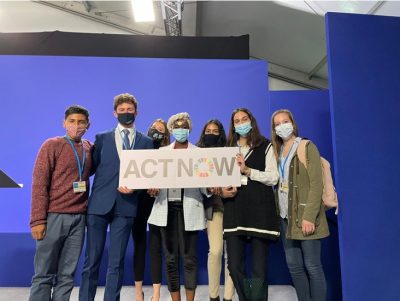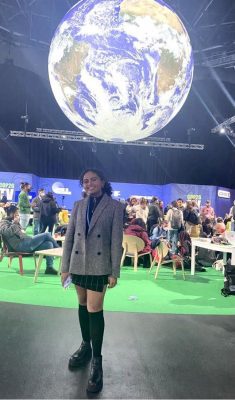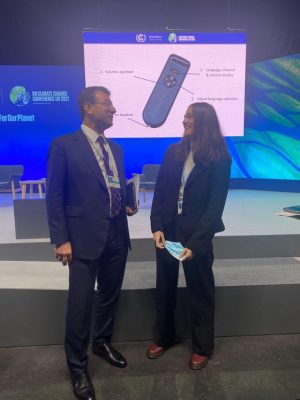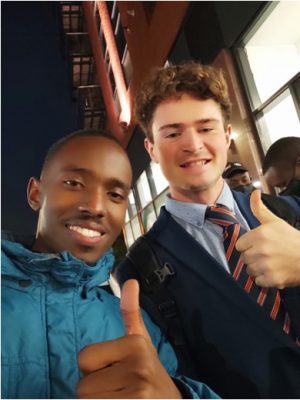My first days at the Sharm el-Sheikh Climate Change Conference of the UNFCCC have been, in short, absolutely life altering. I want to start with the sentiment that I am extraordinarily privileged to be able to attend such an important global gathering which brings together not only party negotiators, but other representatives from various nations, passionate campaign and organization leaders, fierce Indigenous peoples, impacted community members, determined scientists, and concerned observers (like myself). The ability for over 50,000 people to gather in one space (although a seemingly disjointed one) is a groundbreaking feat that cannot go unnoticed. I have learned that we need to absorb and appreciate climate change wins wherever we can, even if it’s seemingly as simple as putting experts within the same four walls.
Throughout the last 72 hours, I have listened to human beings telling their stories about how the impacts of climate change are affecting their own lives, and those that they’re tasked to represent. Climate change is literally taking people’s ability to exist in this world away, and I get the chance to look at people’s faces while they convey these sentiments. I get to see the despair in their eyes. Despite their devastating experiences, these strong individuals remain positive and convinced that those in power at this conference (the negotiators) will act with their best interests because not only is it what they deserve, but because the only other alternative is their slow, painful extinction.
While attending a panel on ending fossil fuel investments on Wednesday, I listened to a BIPOC woman leader of an organization in Louisiana beg her constituents: “We don’t want resilience—we want equity, we want environmental justice, we want help.” Afterwards, a campaign lead of Power Shift Africa named Dean Bhebhe was on the verge of tears when he spoke the following: “We want to build our own narrative. It’s like these fossil fuel industries are trying to build telephone lines while we Africans already have mobile phones; it makes no sense. We say no to that, and yes to our own agency in decision making and a just energy transition.” As one of many observers in the room that day I was extremely moved. But I have to ask this—where were the 600 fossil fuel representatives whose passes were approved to attend the conference in order to network and increase their capital while these conversations were happening in the same vicinity? Why aren’t these perpetuators of colonial racism and resource exploitation calling upon love and empathy instead in order to resonate with the very people they’re killing? Why don’t they care enough to show up and just listen?
Unfortunately, this hasn’t been an isolated incident at COP27. Whether I attended an event on environmental health and nature-based solutions, green hydrogen power, measuring the health of coral reefs, growing sustainable infrastructure, or the finance sector’s investment portfolio transition towards renewables, this lack of empathy has remained constant. People are facing the disproportionate impacts of climate change right now, especially here at the “African COP”, and they’re deliberately being left out of solution making processes at the top. They’re just begging the negotiators to heed their warnings to prevent irreversible climate disaster and for their fundamental human rights. But the negotiators aren’t listening, or attending these crucial “side event” panels (they are poorly named as such).
However, these people are strong. These people—those from marginalized communities, the most vulnerable to climate change impacts and those who have time and time again been left out of conversations to develop policies that could actually work—don’t give up. They maintain hope, positivity, passion, and drive. They fill others in these spaces with the same feelings by sharing their stories. How do they do that? I want to learn from them; they truly fill me with inspiration. And so I won’t give up on them, on the problematic COP27 conference, or on our warming planet.
I will carry my privilege with me and use it as a tool to do my part to help support, enact hope like those I have witnessed, and carry the stories of those who are not given a voice with me. I ask the leaders of my own nation to recognize their own privilege, call upon empathy, and turn both of these things into REAL action aimed at those who truly need it most.




